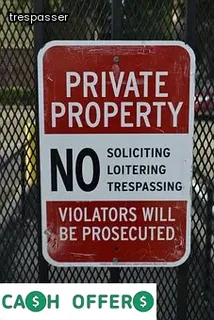Alaska has unique squatters rights laws, known as Adverse Possession laws, that determine who is entitled to a property based on the amount of time spent inhabiting it. For a squatter to make a claim for Adverse Possession in Alaska, they must occupy the land for at least ten years and prove that they have been making improvements to it or using it for other purposes such as farming or ranching.
In order to qualify, the squatter must also be able to show that they are either paying taxes on the property or providing reasonable proof that the owner has abandoned it. When looking at squatters rights in Alaska, one should also consider potential risks associated with adverse possession laws.
These include legal disputes over ownership and financial costs associated with defending any claims made. Additionally, squatters may find themselves facing eviction if an owner is eventually located and wants their land back.
Understanding these aspects of Adverse Possession can help guide individuals seeking to explore their options when dealing with property issues in Alaska.

Squatters in Alaska are afforded certain rights through adverse possession laws. These laws enable individuals to acquire title to real property after a certain period of time if they satisfy the legal requirements for adverse possession, including making open and notorious use of the land, paying any taxes on the land, and living on it continuously for a certain amount of time.
The exact amount of time required depends on the particular state law governing adverse possession and can range from seven to twenty years. To be successful under Alaska’s adverse possession laws, squatters must also demonstrate that they have acted as owners of the land by clearly showing their intention to possess and use the property in an exclusive manner, without permission or recognition from its rightful owner.
Furthermore, squatters must prove that their possession is not merely tolerated by the true owner but instead is hostile and without consent. If all these criteria are met, then squatters may be able to obtain title to real property in Alaska through adverse possession.
In Alaska, one of the primary benefits of claiming adverse possession is that it grants individuals who have occupied land under color of title certain legal rights. These rights are derived from the state’s statutes which provide protection to those who take possession and occupy a piece of land with “color of title” - meaning they possess a deed or other document that gives them the appearance of having legitimate ownership, but which is either inaccurate or invalid.
This type of claim provides various protections to squatters in Alaska because it establishes clear boundaries between the landholder and any other parties. Furthermore, these claims can be used to protect against possible eviction, as well as granting squatters valuable rights such as access to minerals or water sources on or near the property.
Additionally, squatters may be able to gain access to tax benefits such as exemptions from certain taxes and fees associated with owning property in Alaska. Lastly, this type of claim may also provide some security for those living on a piece of land when facing potential foreclosure proceedings from a lender.

In Alaska, it is important for property owners to be aware of the laws surrounding adverse possession in order to protect against squatting. The state's "open and notorious" law states that if a trespasser openly occupies the property for a certain amount of time without the owner's consent, they can gain ownership rights.
Property owners should take steps to ensure that their land is adequately fenced and posted with visible no-trespassing signs, as well as regularly monitoring their land. There are also legal remedies available in Alaska such as filing an ejectment action or civil suit against squatters to remove them from your land and prevent adverse possession.
Finally, prospective buyers should also do their due diligence when purchasing vacant land in Alaska by researching the title and investigating any prior claims or squatters on the property. Taking these steps will help property owners protect themselves from squatting while exploring Alaskan squatter rights.
Living in Wisconsin can be expensive, but there are many ways to save money and live comfortably. Budgeting is key for residents who want to make the most of their income.
Many local grocery stores offer discounts for bulk purchases, and there are often deals on transportation costs too. Additionally, utility costs can be reduced by taking advantage of energy-saving programs like those offered by the state government.
Renters have several options when it comes to housing, as well as access to free or discounted services from community organizations. Taking advantage of these resources can help lower the cost of living in Wisconsin and make life more affordable for both renters and homeowners alike.

Familiarizing yourself with Wisconsin fence laws is an important part of understanding the legal rights of squatters in Alaska. In Wisconsin, adverse possession laws require that a squatter occupy a property continuously for at least 20 years and demonstrate clear intent to claim ownership for those 20 years.
This means that in order to establish ownership of land, squatters must have made improvements to the property during the occupancy period such as erecting fences or buildings. Fences are especially important when it comes to adverse possession claims because they mark boundaries between properties and can help prove that a squatter has been occupying the land for some time.
When claiming adverse possession under Wisconsin law, squatters must also show “open and notorious” use of the property which requires that neighboring landowners be aware of their presence on the land. When considering whether a squatter has made continuous occupation of a property, courts will look at whether they have built fences, paid taxes on the land or sent mail to an address associated with it.
Knowing these requirements is essential for anyone exploring their rights as a squatter in Alaska so they can understand what they need to do in order to make an effective claim.
Living in Alaska can be a unique experience, and understanding the laws that govern squatters rights is an important part of understanding the legal framework. Squatting is when someone takes up residence on property they do not own, and adverse possession rules are laws that allow for a squatter to gain title of the land after a certain period of time.
In Alaska, adverse possession can only occur if the person has lived on the land for at least 10 years with good faith intention to own it. The squatter must also have acted openly and continuously throughout that period, and must have made improvements to the property such as clearing vegetation or building structures.
Knowing these facts about living in Alaska will help you understand your rights as a squatter and make sure you are aware of any changes in the law.

Alaska is home to a unique form of adverse possession, which is known as squatters rights. Adverse possession is the legal process by which someone acquires title to property that they do not own, simply by occupying it for a certain period of time.
In Alaska, squatters rights are based on a body of common law that predates statehood and is still applicable in some areas today. To understand how these laws work in Alaska, one must first look at the requirements for adverse possession under state law.
Generally speaking, an individual must possess the property for at least 10 years in order to claim it as their own. This period is extended if there are other claimants or if the property has been abandoned or neglected by its former owner.
Additionally, the claimant must prove that they have made significant improvements to the land and have used it without interruption during this time period. Once these requirements are met, then the squatter may be able to obtain title to the property through court proceedings or other legal means.
Understanding these laws can help an individual determine whether they may have a viable claim to real estate in Alaska and ensure that their rights are protected when dealing with adverse possession claims.
Color of title is an important concept to understand when exploring squatters rights in Alaska. It refers to a person's legal claim to a piece of property, and is determined by examining their title deed or other evidence of ownership.
In order for squatters rights to be established, the squatter must possess the property for a certain period of time without the owner's permission or knowledge. If a squatter has color of title, it means that they can prove that they have been occupying the land for long enough to gain legal possession.
This could be done through proof of payment, physical presence, or both. Color of title can also play an important role in adverse possession laws in Alaska; if a squatter has color of title on the land, then they may be able to gain full legal rights over it if they meet certain requirements under adverse possession laws.
Understanding color of title is key when exploring squatters rights in Alaska and determining whether or not obtaining legal ownership through adverse possession is possible.

Squatters in Alaska who have successfully acquired ownership of land through adverse possession may be subject to property taxes, depending on the laws of the municipality and/or county where they are located. Generally speaking, if a squatter has taken up occupancy of a piece of land for a period of 10 years or more, they may be required to pay property taxes, just like any other landowner.
Property taxes can vary significantly depending on location and other factors such as size or type of land owned. In addition, squatters will generally have to provide proof that they have taken up occupancy and that it has been maintained for at least ten years in order to qualify for tax exemptions.
It is important to note that some municipalities and counties offer property tax exemptions solely on the basis of adverse possession status, while others may require additional proof such as a deed or title document. Furthermore, squatters should be aware that failure to pay property taxes could result in legal action being taken against them by local authorities.
In Alaska, the removal process of a squatter living on your land can be done through the state's adverse possession laws. Adverse possession is a legal concept whereby squatters can gain title to a property simply by occupying it for an extended period of time.
In Alaska, this period is typically seven years for someone who has been in open, notorious and hostile possession of the land without consent from the true owner. A hostile claim means that squatters must use the property as if they were its owner, with no permission from the actual owner.
The court will look at how long the squatter has occupied the property and whether or not they were paying taxes on it. Furthermore, to successfully evict a squatter from private land in Alaska, you must take them to court and prove that their claim was not made in good faith or was acquired fraudulently.
It is important to note that if you do take someone to court and are successful in having them evicted, you may also be liable for court costs and attorney fees incurred during the eviction process.

In Alaska, it is important for property owners to be aware of their rights and the state's adverse possession laws to protect against squatters. Squatters can enter a vacant property when the rightful owner is away or not paying attention, which can cause major problems if left unchecked.
To prevent this from happening, first make sure that your property is well-secured with gates, locks, and other security measures. Additionally, post clearly visible “no trespassing” signs in multiple locations on your property.
If you're away for an extended period of time, consider hiring a security guard or having a trusted neighbor keep an eye out for signs of trespassers. Checking in regularly on your property will also help deter potential squatters.
Finally, it is important to stay informed about changes in local legislation and the latest court rulings related to adverse possession so that you know exactly what your legal rights are as a property owner in Alaska.
When it comes to owning a dog in Kentucky, there are certain laws and regulations that must be taken into consideration. Dog owners in the state should be aware of local ordinances that may limit the number of dogs allowed on their property, as well as restrictions on leash-lengths and muzzle requirements for certain breeds.
Furthermore, some cities and counties in Kentucky require annual licensing for all dogs, along with proof of vaccinations. Additionally, pet owners should remain mindful of noise ordinances that prohibit barking or howling from pets at any hour of the day or night.
Finally, when considering adoption or purchase of a new canine companion, potential owners should always consider whether they have sufficient space to provide adequate housing and exercise for their pet.

In order to prove a color of title claim in Alaska, you need to present certain documents that demonstrate your ownership of the property. These documents typically include some form of deed or other written evidence that proves you possess the land legally.
The deed must be acknowledged and signed by two witnesses for it to be valid. Additionally, you should have a legal statement from the state showing that no other party has any kind of interest in the property.
Furthermore, it is important to provide evidence that shows your continuous possession and use of the land throughout a period of 10 years or more. Documents such as tax records, utility receipts, and statements from neighbors can all help prove squatter’s rights in Alaska.
If you are unable to provide these documents, then it may be difficult to claim adverse possession of the property.
If you are a landlord or homeowner in Alaska, understanding and verifying squatters' rights can be critical for protecting your property. Adverse possession laws in Alaska give squatters certain rights to occupy land that has been abandoned by its rightful owner.
To verify that you are not dealing with a squatter on your property, there are several steps you can take. Firstly, check to see if the person claiming squatter's rights can prove they have been occupying the land for at least 10 years uninterruptedly.
Secondly, it is important to establish who holds legal title to the land in question and if any taxes have been paid on it; this will help you determine whether or not someone has made an effort to gain legal ownership of the land. Thirdly, research any court judgments related to the land; this will help you identify any possible claims made by squatters.
Lastly, make sure to follow all of Alaska's adverse possession laws and regulations; this will ensure that all parties involved understand their rights and responsibilities regarding the property in question.

Navigating legal issues surrounding adverse possession claims in Alaska is a complex endeavor. In Alaska, a squatter can acquire legal title to property through the doctrine of adverse possession, which requires a period of open and notorious possession for a certain amount of time and payment of taxes.
To successfully prove an adverse possession claim requires the squatter to meet several criteria including proving the land has been occupied for at least seven years, having exclusive use of the land, paying all applicable taxes on the land, having no permission from the true owner, and taking steps to establish ownership such as fencing or improving the property. These criteria are determined by law and cannot be modified or negotiated with any other party.
Understanding these requirements and being aware of potential pitfalls can help ensure that squatters are able to confidently pursue their rights under Adverse Possession laws in Alaska.
When exploring squatters rights in Alaska, it is important to consider the cost of home and auto insurance coverage. To ensure that you are getting the best deal on these types of insurance policies, there are several best practices that should be followed.
First and foremost, shop around for rates from different providers - compare the coverage and cost of each policy to make sure you're getting the most bang for your buck. It's also a good idea to look into discounts that may be available - many insurers offer discounts for bundling home and auto policies together or for loyalty programs.
Additionally, make sure to read the fine print so that you understand exactly what your policy covers and any other terms and conditions involved. Finally, if possible, set aside more money for a higher deductible - this could lead to lower premiums over time.
With these tips in mind, you can save time and money while finding low-cost home and auto insurance coverage in Alaska.

Exploring the risks and rewards of allowing a squatter to reside on your land in Alaska is an important decision that requires a full understanding of adverse possession laws. In some cases, squatters can gain legal rights over the property if they openly occupy it for a certain amount of time.
This is known as adverse possession, and it can be a difficult process to navigate. If you are facing a situation involving squatters on your land, there are several factors to consider.
Property owners should look into local laws to understand how long someone must occupy the premises before they can make a claim for adverse possession. Additionally, the owner may need to be aware of any limitations that apply depending on the type of property in question.
Understanding what actions to take if you find yourself dealing with living occupants on your land is essential for protecting your rights as a property owner in Alaska.
Exploring Squatters Rights In Alaska is a complex and often misunderstood area of law. Adverse possession laws in Alaska grant squatters certain rights in certain circumstances, allowing them to establish title over the property they are occupying.
It is important for those facing legal disputes to find resources that can help them understand their rights and navigate the complexities of these laws. There are various options available, from consulting an experienced lawyer to researching information on the internet or speaking with local government officials to learn more about adverse possession claims in Alaska.
In addition, organizations like Legal Services Alaska provide free or low-cost legal advice and assistance for those with limited resources. Understanding these options is key to navigating any legal disputes regarding adverse possession claims in Alaska efficiently and effectively.
In Alaska, adverse possession laws determine how much time a squatter has to be in possession of a property before they can acquire the rights to the land. Generally, the shortest time for squatters rights is 10 years; however, this varies depending on the specific circumstances of each case.
The squatter must demonstrate that they have been in continuous, exclusive possession of the property for at least 10 years and have paid all taxes related to it. Additionally, these rules apply differently depending on whether or not the owner resides on the property; if so, then it may be more difficult for a squatter to acquire ownership rights.
It is important to note that when squatting on public lands, different regulations may apply and there are usually shorter timelines for acquiring rights. Ultimately, exploring squatters' rights in Alaska requires careful consideration of state and local laws to ensure compliance with all applicable regulations.

Alaska is one of the most accommodating states for squatters seeking to exercise their rights under adverse possession laws. Squatters in Alaska have a better chance of successfully claiming land under adverse possession than in many other states.
This is due to the leniency of Alaska's squatting laws which allow an individual to claim title after living on the property and paying taxes for 7 years. Additionally, Alaska allows people who make improvements to the property to gain title even faster, after just 3 years if they can prove that they paid taxes on the property during that time.
Other states may require a certain amount of payment or payments over a longer period of time before squatter's rights are established. Ultimately, it is clear that Alaska offers some of the simplest and most straightforward squatters rights in all fifty states.
Squatting is a practice in which an individual takes possession of a piece of property without permission from the owner. In Alaska, squatters may be able to legally remain on land if they comply with the state's laws surrounding adverse possession.
Adverse possession is a legal concept in which an individual can gain legal title to another person’s property as long as they meet certain conditions. The conditions vary by state, but generally include actual, open, notorious, exclusive and continuous occupation of the property for a specified period of time.
In Alaska, the squatter must possess and occupy the land for at least 10 years and make improvements to it in order to establish adverse possession rights. Furthermore, any payment made towards taxes or rents on the land will likely be taken into consideration when determining if adverse possession has been established.
If all requirements are met, then title to the property may pass from the original owner to the squatter after that 10 year period. Understanding and abiding by these laws is essential for squatters who wish to maintain their rights to remain on particular properties in Alaska.
Are squatters rights OK? In many states throughout the US, including Alaska, there are laws regarding adverse possession or "squatters rights." It is important to understand the implications of these laws, as they can be applied in a variety of situations.
Squatters rights may be used as a legal method for obtaining title to real property by occupying or using it for an extended period of time. While these laws vary from state to state, in Alaska they generally require that an individual occupy and possess the land for a minimum of 10 years without interruption and without payment of rent.
Additionally, squatters must pay all taxes on the property during their occupancy; notify the owner of their presence; and make visible improvements that are consistent with ownership such as building fences or planting crops. If these requirements are met, then both parties may have certain legal rights and obligations depending on their particular situation.
It is important to consult with an attorney who understands adverse possession laws in Alaska before attempting to establish any legal claim to real property through squatting.
A: The process for evicting a tenant at-will in Alaska who has been identified as a squatter involves providing them with a Notice to Quit or an Eviction Notice, and if they fail to vacate the property, taking legal action through an Unlawful Detainer.
A: In Alaska, squatters typically acquire rights through a prescriptive easement or a utility easement.

A: Yes, Alaska law states that if an individual has been in open and notorious possession of property for seven years without the permission of the legal owner, they may be able to establish a claim to ownership. However, it is recommended that individuals seeking to establish such a claim seek legal counsel first.
A: In Alaska, adverse possession laws give squatters the right to own land if they demonstrate continuous and exclusive use of it for a specified period of time. Generally, this period must be at least 10 years and is based on state statutes.
A: Yes, squatting in Alaska is generally considered to be an illegal activity and can result in criminal charges if a complaint is made.
A: In Alaska, the laws of adverse possession allow squatters to gain legal title to a property if they have been in continuous and open occupation of it for 10 years or more. The squatter must also have paid any taxes due on the property, made repairs and improvements, and acted as if they were the legal owner.